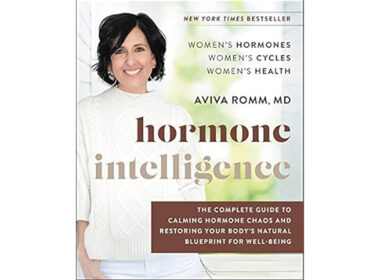“I hate NFP. I hate it!”
My friend, a 36-year-old man, sitting across from me at a popular Mexican eatery for a beer, is a tall, kind, and rather quiet type. A scientist, he is also a Catholic who wants to live the teachings of his faith about sexuality, which, if a couple would like to avoid pregnancy, requires the practice of Natural Family Planning (NFP) as opposed to the use of contraceptives.
“I get the ideology, the ideas behind it, and why it’s better than contraception. But in practice I hate it. I bet a lot of Catholic men feel the same but nobody talks about it.”
John’s situation may be somewhat uncommon, but it’s certainly not unique. His wife of 10 years got pregnant the first time they had intercourse without contraceptives. They now have two children, the youngest of whom is four. One of the reasons they don’t have more children is because they hardly have intercourse. Adding to the difficulty, his wife has a very anxious personality, in part from a hard upbringing.
John is angry. He feels a lot of rejection from her.
“I’ve tried everything to make it work for her. She turns me down most of the time; there is always a reason,” he said. “When we do it, it’s so stressful, she’s so tense that it’s not even enjoyable.”
What makes it even more challenging is that John feels he can’t tell anybody. There seems to be no place for men to speak about this issue. “There is a lot of shame,” he said.
The studies we’ve reported in past articles show that most women (53%) and men (63%) feel that using NFP improved their sex life while 32% of women and 24% of men felt it was unchanged from before they used NFP. But for 11% of men, it has made it worse (only 1% of women). And 5% of men and 3% of women were very unsatisfied with the frequency of their sex relations.
If you are in that 11% of men, or don’t think it’s worth the risk that you might fall into that 11%, I can see you jumping to conclusions from this data: NFP is not for me. Think again, because the level of dissatisfaction with frequency of sex is actually much higher in the general public: while 23% of women and 27% of men using NFP were dissatisfied or very dissatisfied with the frequency of sexual intercourse, the Relationships in America survey reports that the respective numbers for the greater population are 33% for women and 53% for men. Almost double!
This data tells us not only that NFP is not necessarily the source of sex-life dissatisfaction, but also that, clearly, other forms of family planning aren’t helping much either.
Still, there’s more to the story.
What men experience
Obviously, men are not the only ones who can feel frustrated with the lack of sex, but this article is focusing on how men can deal with this situation. It is likely a stronger physical burden for most of them by the mere fact that they don’t really have the cycles of desire that women go through around ovulation. Our hormones tend to be steady in that area. Our physical desire is sometimes compared to women’s desire for emotional affirmation and comfort.
So that women understand the difficulty a man experiences when he is repeatedly rejected sexually by his wife, or accepted with reluctance, I would venture to say it is likely as painful as if every time his wife started to show emotions and feelings, he would leave or disconnect from her. If she complained to him about it he would ignore her, dismiss her, or even mock her. Unfortunately, many women have likely experienced this and can see my point.
So we need to talk about it.
A Lack of Physical Intimacy As a Sign of Deeper Dysfunction
Sexuality, unless it’s purely selfish, cannot be taken out of the broader relational context. It is easy to imagine that the lack of physical relations in a marriage can lead to resentment and relationship difficulties. Conversely, intercourse is known to increase couples’ connection through the release of oxytocin, the same hormone that helps a mother and a baby connect through breastfeeding. Often, a dysfunctional sexual relationship is a sign of something deeper that is crying to be healed. Sex is impacted by the values of the couples, their own psyches, their physical health, and the quality of their relationship. The following suggestions barely touch on the subject but are starting points to explore.
Check your bodies.
Let’s start with the somewhat basic stuff. If one party is experiencing lower interest in sex than they used to, they might want to see a doctor about it. Urologist Joan Meaney, MD, explained to me in a recent interview that there are two major physical factors to difficult sexuality for women: painful intercourse and hormonal imbalance.
“Multiple physical and hormonal factors can contribute to difficult or painful intercourse,” she explained. “Painful intercourse finds its sources in both gynecologic and/or bladder problems.” The bladder and vaginal tissues share some nerve functions and are influenced by a woman’s hormonal balance.
Pelvic pain can be related to dysfunction and spasms of the muscles that support the pelvic floor organs: the bladder, bowel, and uterus. What makes it worse is that “the anticipation of pain can create a negative feedback loop that kills women’s libido,” Dr. Meaney noted.
Multiple approaches are available for women and their doctors to help with these problems, including pelvic floor physical therapy, behavioral therapies (stress is a factor), diet (reduce acid and caffeine), and medications to reduce nerve ending pain.
The lack of libido can also be related to stress, depression, and/or hormonal imbalances. Testosterone in both women and men is the hormone of desire.
“Unfortunately, hormonal contraceptives can have an effect on the body that is detrimental to the production of the normal hormonal balance, which can last even after stopping the contraceptives,” said Dr. Meany. Taking testosterone supplements may help.
Check your values.
The values you bring into the physical relationship matter a lot. For example, what is your position concerning family size? What religious beliefs do you share or not? Do you have deep-seated ideas that sex is dirty and shameful? Having a dialogue and coming together on these topics will help.
One area that may not often be discussed and is often difficult for men and women to talk about is the meaning of sexuality. Just like other physical gestures like facial expressions, touches, body postures, the sexual act has a deep meaning and is often unconsciously interpreted by your partner. People who are deeply engaged in use of pornography and non-relational sex habits come to this part at a huge disadvantage. It’s a bit like someone who has only been used to dancing alone who is trying to dance in a duo. It introduces the chance that he will only be looking for his own satisfaction and be less attentive the partner’s needs, rhythm, and signals.
It is crucial to seek healing in this area if you’d like to improve your relational life, because porn leads to unrealistic expectations of partners and less satisfaction with real-life partners. It’s certainly exciting and an easy way to get aroused, but not so good for dancing together. Porn and NFP don’t work well together because it can generate cravings that make the abstinence periods of NFP more difficult and lead to anger.
Check your psychological life.
We are all wounded persons in some respect, and these wounds can easily show up in our sex life. For some of us, shame and trauma played a role. Others are driven by examples of domination and power. For many, like John’s wife, deep seated anxiety and fears are a factor. If personal issues are not being resolved in the relationship, it is a responsible step to work on them with the support of a professional therapist. It is not different from a physical wound that can use treatment. It takes time, effort, and courage, but your relationship is worth it.
If your partner is struggling with such challenges but is not self-aware and/or unwilling to get help, you can’t force him or her. However, it is not uncommon that after years of experiencing this relationship, you may have developed enabling behaviors and can’t see it. Seeking therapy help for yourself will help untangle these complex relationship issues, set healthy boundaries, and begin better communication. You both will win.
Check your communication.
Much is written about communication these days that needs to be said. Although my wife and I have known and somewhat practiced methods, we both feel like beginners sometimes. Here are a couple of basics to get you started. Practice them for a month or two, and you will see changes.
One basic rule is listening—really listening to each other. Stop everything, including the running commentary in your head; hold off judgement, put away the phone, and the TV remote, sit down, look at each other, and listen. Then once you’ve heard her, repeat what you’ve heard in some way. Use your own words if you can, but mainly seek to really understand what the other person experiences, and even feel it. Ask your wife to describe how she feels when thus-and-so happened. And then stop. Here is my frequent mistake: I want to help, I suggest solutions, give advice, judge, and so on (especially if I am responsible for the feelings she experiences). Most of the time, all my wife wants and needs is to be heard, understood, and accepted.
When it’s your turn to share your own feelings, express them using “I statements”; as in, “I feel rejected when you don’t look at me when I get home.” Or, “I feel frustrated in the evenings when I try to be with you and the kids are still taking all your attention.” You can illustrate: “It feels like when the time I was bullied at school,” or “it feels like when I was a kid and my parents never took the time to listen to me.” You get the picture. It can get pretty deep and opens you to being vulnerable. Ask for the same listening treatment described above from your partner. If you model it for her, she will learn too.
Check your spiritual life.
Whatever your spiritual practice, sexual relationship difficulties are definitely something to bring into your quiet time. It touches us so deeply about our identity and our desires for fulfillment that we cannot deny its connection to our spiritual life. If you have a meditation or prayer practice, you will find that it helps you deal with negative feelings around the pain you may experience. It will likely help you regain confidence in who you are as a loved and important human person and regain hope. In these matters, you can also carefully choose a spiritual director, someone relatable but who also has a broad understanding of human sexuality as a relationship as opposed to a merely physical need.
With all this said, I have barely touched the tip of the iceberg. I see this article as an opportunity to invite other men to share about these experiences and about the way they have overcome these challenges so that we can have real conversations and help each other. You can use this link to write us confidentially and anonymously. I also want to encourage men to break the ice and find someone else to talk to about topics like these. Just having a conversation with someone who can listen will help blow off a lot of steam. That’s what John did when he talked to me, and I trust it will help many people as a result.
Be well,
Gerard Migeon
References
Migeon, G. “10 Ways Fertility Awareness Improves Your Love Life.” Natural Womanhood, 11 June 2017.
Unseld, M. et al. “Use of Natural Family Planning (NFP) and Its Effect on Couple Relationships and Sexual Satisfaction: A Multi-Country Survey of NFP Users from US and Europe.” Frontiers in Public Health, 13 March 2017.
VandeVusse et al. “Couples’ Views of the Effects of Natural Family Planning on Marital Dynamics,” Journal of Nursing Scholarship, 2004, Volume 35, No. 2
Relationships in America Survey. The Austin Institute for the Study of Family and Culture, 2014.
Perry, S.L. & Davis, J.T. (2017). Are pornography users more likely to experience a romantic breakup? Evidence from Longitudinal Data. Sexuality & Culture, July 2017. DOI 10.1007/s12119-017-9444-8.
Giles, G. How Pornography Distorts Intimate Relationships. Addiction.com, 23 May 2015.
Natural Family Planning Awareness Week: Generations of Love Humanae Vitae (1968-2018) Celebrate God’s Gift of Married Love! United States Conference of Catholic Bishops. 22-28 July 2018.







